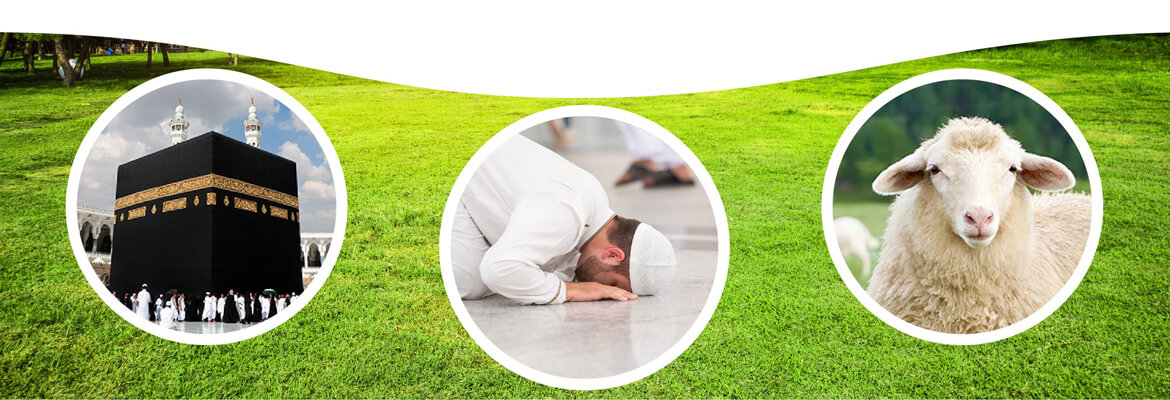
The Rules Of Sacrifice
The day of Eid Al Adha corresponds to the 10th day of the month of Dhul Hijja and corresponds to the commemoration of the sacrifice of Abraham.
The interest of the sacrifice of Eid AL Adha
The sacrifice of Eid Al Adha is made by the pilgrims during the Hajj but is still strongly regarded as the highly recommended sunnah to be performed after the Eid prayer.
Indeed, according to the Prophet Muhammad (PBSL), the first thing to do on Eid’s day is the prayer then achieve the sacrifice. But why start with a prayer?
The Eid prayer proves the profound meaning given by Islam to this feast.
Indeed, the Eid El Kebir as the denomination of the populations of North Africa aims to close an important period of adoration namely the first 10 days of Dhou Al Hajja.
The conditions to be fulfilled by the priest
Generally, the head of the family is responsible of the sacrifice. He can do it alone or ask another person to do it. Indeed, nowadays, the current legislation makes the delegation unavoidable but it remains recommended to do it yourself. This is important due to the link of the person with the animal to sacrifice to God, a strong link between two creatures the man and the beast submitting to their creator.
However, the sacrificer should not cut his hair and nails from the first day of Dhou Al Hajja until the moment of the sacrifice. But in case of forgot, his is admitted and even forgiven. Regarding the deceased, the erudite think that it is possible to make the sacrifice on their behalf even though many of them will condition the act if it is the deceased has claim before his death.
The conditions to be fulfilled by the animal
According to the texts, it is necessary to sacrifice a sheep aged more than one year old and it is important to respect this tradition. However, it is necessary that several families can associate for a sacrifice of a cattle or a camelid.But the animal must immediately be free from defects that could render the invalidity of the sacrifice, such as:
- One-eyed animal.
- A sick animal with visible symptoms.
- A handicapped animal: We can cite the example of the beast that limps.
- The puny animal.
However, we mustn’t neglect the other recommendations that do not complete the validity of the sacrifice considered not comparable to the slaughter of the rest of the year. As long as the consumption of meat was rare at that time, which is better for health, it was consumed on special occasions like the day of Eid Al Adha and on this occasion it is recommended to share it with the poorest. Therefore this feast, requires to recreate a link between the family and the poor who will be our guests of honor and will be entitled to eat a beast with no defects.
The sacrifice
The purchase of the animal must be made with intent to sacrifice. During this sacrifice, it is recommended to lay the animal in the direction of the Qibla (Mecca) and say "O Allah, this is from you and for you, accept it from me. The Prophet (PBSL) also used to say, "In the name of God. Lord, accept this sacrifice of Muhammad, from the relatives of Muhammad and from the community of Muhammad. [Muslim]
However, if the sacrifice is made by another person, it is necessary to specify the name of the person at the time of bleeding. To those who rush and dispose the animals on the first day of Eid avoid the conflict with the butcher or other people, it is best to keep in mind the meaning of this day at the risk of making the sacrifice on second or third day with more serenity and tranquility.
Recommandations
- The opportune moment for sacrifice is the return from the Eid prayer, enough time to perform two Rak'ah and two speeches
- At the moment of sacrifice there are 5 things to know:
- Al-tasmiya: Say Bismi l-Lah
- The invocation in favor of the prophet
- To lead the beast towards the qiblah
- At-takbir: Say Allahou Akbar
- The invocation of acceptance: Allahuma Takabal Minni
- It is forbidden to sell anything of the sacrifice
- It is not allowed to give anything as a reward to the sacrificer
